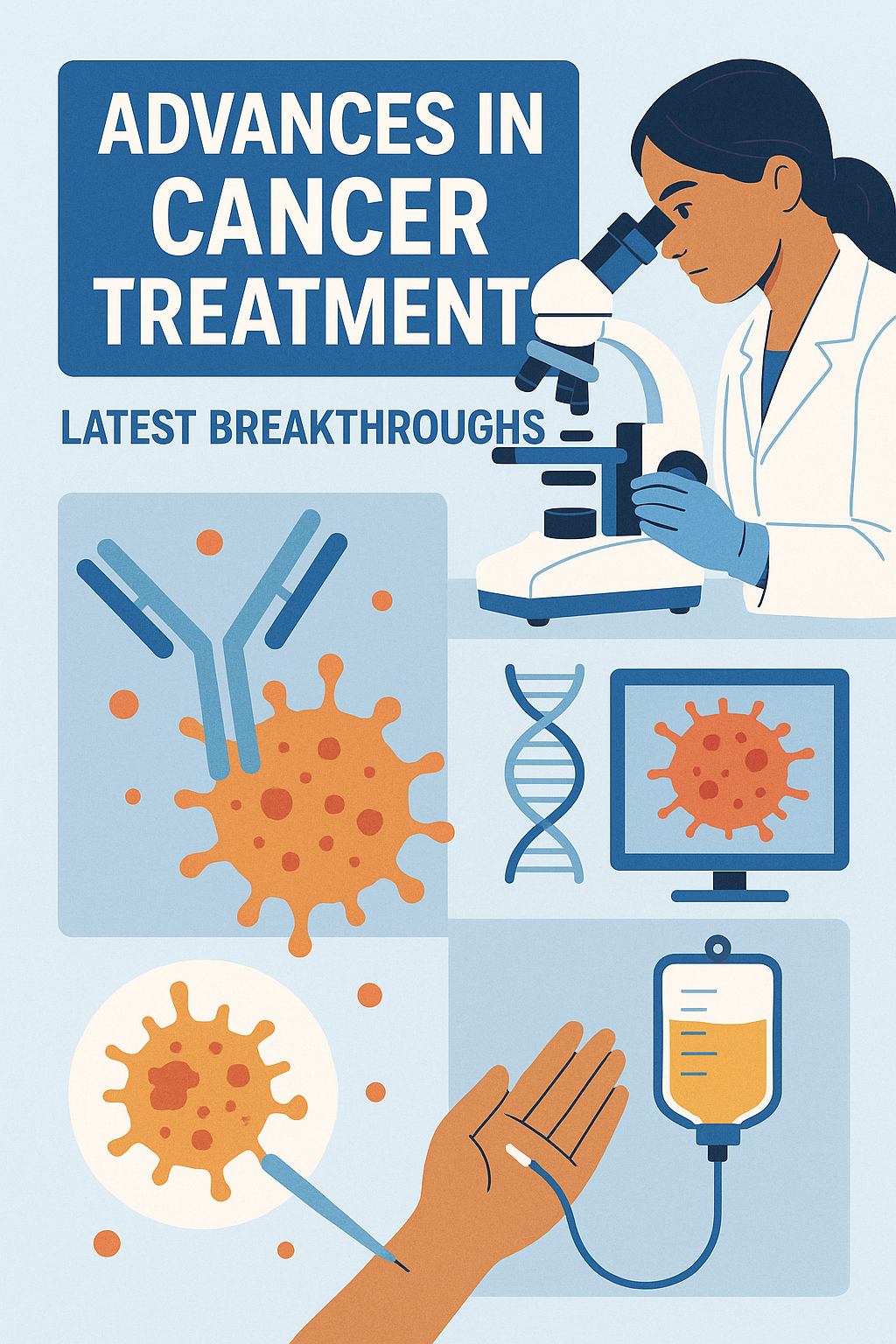Advances in Cancer Treatment: Latest Breakthroughs
Cancer treatment has come a long way in recent years. With ongoing research and rapid progress in medical science, new therapies are offering patients better outcomes, fewer side effects, and improved quality of life. Here are some of the most important breakthroughs in cancer treatment that are shaping the future of oncology.
1. Immunotherapy – Harnessing the Power of the Immune System
Immunotherapy uses the body’s own immune system to fight cancer. Unlike chemotherapy, which directly attacks cancer cells, immunotherapy stimulates immune cells to recognize and destroy tumors.
Checkpoint inhibitors block proteins that prevent immune cells from attacking cancer.
CAR-T cell therapy modifies a patient’s T-cells to target cancer cells more effectively.
Promising results are seen in cancers like melanoma, lung cancer, and leukemia.
2. Targeted Therapy – Precision Medicine
Targeted therapies work by focusing on the specific genetic mutations or proteins that drive cancer growth. This makes them more effective and less harmful to healthy cells compared to traditional chemotherapy.
Examples include HER2 inhibitors for breast cancer and EGFR inhibitors for lung cancer.
Genetic testing helps doctors choose the right targeted drug for each patient.
3. Advancements in Chemotherapy & Radiation
While new treatments are emerging, traditional therapies like chemotherapy and radiation are also improving.
Low-dose and combination chemo approaches are reducing side effects.
Proton beam therapy and advanced radiation techniques precisely target tumors, sparing healthy tissue.
4. Personalized Medicine & Genomics
Doctors are increasingly using genomic profiling to design customized treatment plans. By analyzing the genetic makeup of a patient’s tumor, oncologists can predict how the cancer will respond to different drugs. This ensures more effective treatment with fewer side effects.
5. Liquid Biopsies – Early Detection & Monitoring
Liquid biopsies are simple blood tests that detect traces of cancer DNA circulating in the blood.
They allow early detection, often before symptoms appear.
They also help monitor treatment response and detect cancer recurrence faster than traditional scans.
6. Nanotechnology in Cancer Therapy
Nanoparticles are being developed to deliver drugs directly to cancer cells. This increases effectiveness while reducing damage to healthy cells. Researchers are also exploring nanoparticles for early cancer detection and imaging.
7. Artificial Intelligence (AI) in Oncology
AI is transforming cancer care by:
Analyzing medical images for early detection.
Predicting treatment responses based on patient data.
Assisting doctors in creating more effective treatment plans.
8. Cancer Vaccines
Unlike traditional vaccines, cancer vaccines are designed to treat existing cancers by boosting the immune system’s ability to fight cancer cells. Some preventive vaccines, such as the HPV vaccine, have already shown success in reducing cervical cancer cases
.
🌟 Conclusion
The future of cancer treatment is more personalized, targeted, and patient-friendly than ever before. With breakthroughs in immunotherapy, genomics, nanotechnology, and AI, patients now have more hope for longer survival and a better quality of life.
📅 Book an Appointment
For expert cancer care and access to advanced treatments:
Dr. Vasu Babu Goli
📞 +91-8688641243
📧 drvasubabuonco@gmail.com

